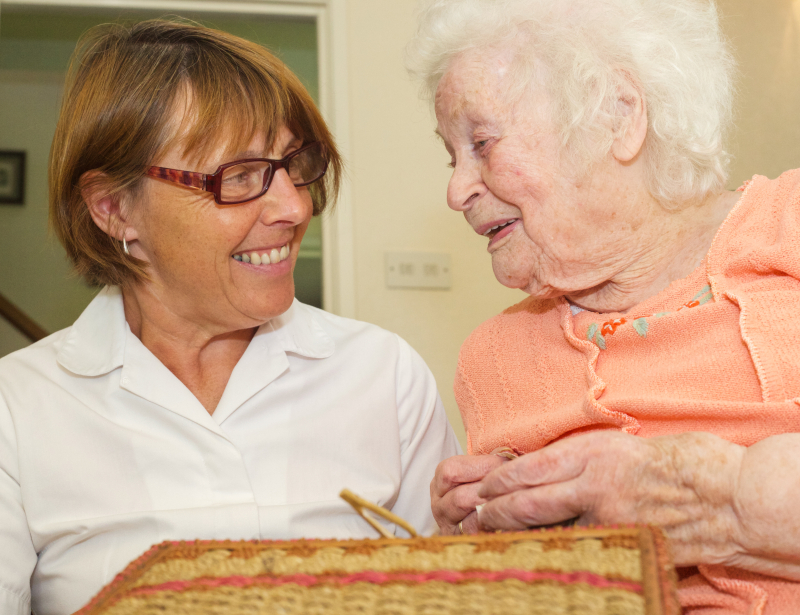Resident Advocate
The Michigan Long Term Care Ombudsman Program (MLTCOP) advocates for the health, safety, well-being, and rights of residents in licensed nursing homes, homes for the aged, and adult foster care homes. Ombudsmen work at the direction of the resident and only take action with the resident's consent. Ombudsman services are provided free of charge.
The program also aims to improve the long term care system, speaking for the passage of laws, regulations, and policies benefiting over 105,000 Michigan long term care residents.

Why Contact an Ombudsman?
- Concerns Contact your local ombudsman when you have a concern about care or services.
- Questions We provide information and consultation to residents, families, staff, and the community about long term care issues.
- Training We can provide training to resident councils or facility staff on a variety of long term care topics.
Know Your Rights
Knowing your rights as a long term care resident is important to ensuring the quality of the care and services you get and the level of respect and dignity you receive while living a meaningful and self-directed life.
Learn About These Topics
Moving into a Nursing Home
Learn the basics of what a resident and family needs to know when moving into a nursing home.
Resident Councils in Nursing Homes
Resident councils are a great way for residents to connect, discuss concerns, and plan events.
Home for the Aged
Learn more about a Home for the Aged and review our frequently asked questions.
Adult Foster Care
Learn more about Adult Foster Care homes and review our frequently asked questions.
Filing a Nursing Home Complaint
The state of Michigan investigates complaints against nursing homes. Learn how to file a complaint.
Involuntary Discharge from a Nursing Home
Learn about the process and resident rights for a nursing home involuntary discharge.

Abuse Prevention
We all can play a role in reducing the potential for abuse, neglect, or exploitation. The MLTCOP provides tools to educate long term care residents, family members, staff, and the community on preventing, identifying, and reporting suspected abuse. We also provide links to multiple abuse prevention resources.

Resources
Additional materials are available from the MLTCOP on a variety of topics as well as links to additional state and national resources.